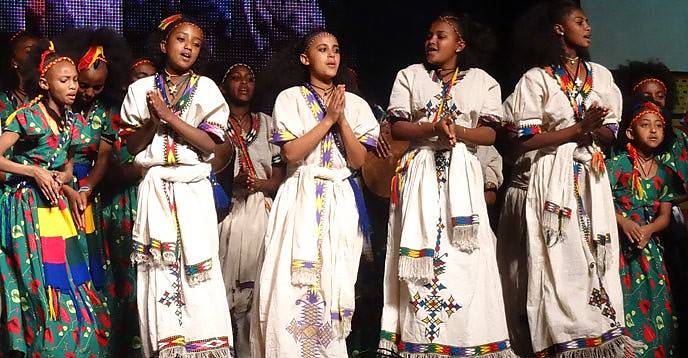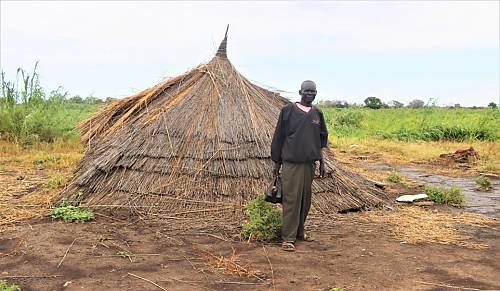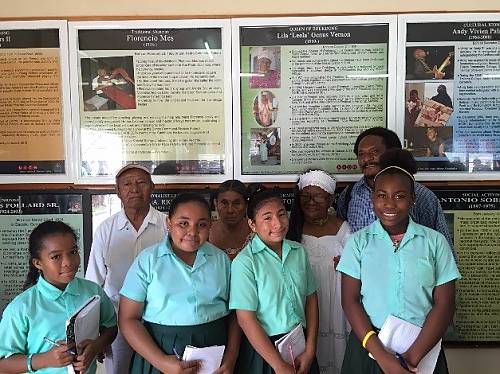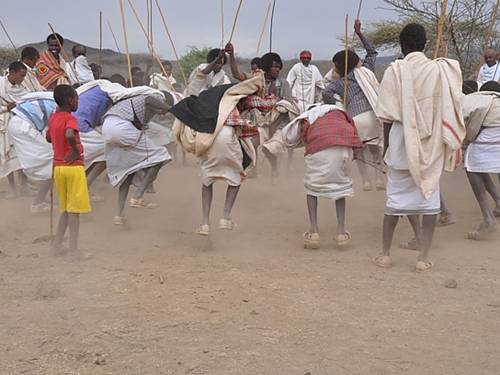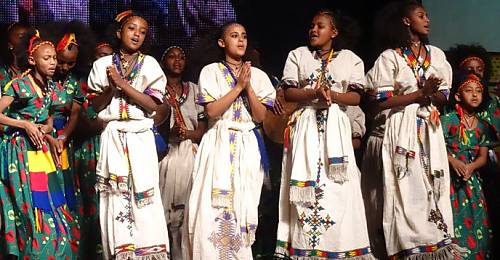The President of Ethiopia, Mulatu Teshome, on Sunday opened the 11th session of the Intergovernmental Committee for the Safeguarding of the Intangible Cultural Heritage at an evening gala that featured examples of the wealth of Ethiopia’s intangible cultural heritage as performed by more than 300 artists and practitioners.
“Ethiopia is Africa’s oldest independent country,” said the President. “More than 80 nations with distinct cultural traditions and values live here and speak more than 80 different languages. Ethiopia has been a member of UNESCO since 1955 and has collaborated with it since then. We take heritage as our legacy from the past and we pass it on to the next generation. The Ethiopian government is committed to preserve it and safeguard it and UNESCO has been a longstanding partner in this endeavour.”
UNESCO’s Deputy Director-General, Getachew Engida, for his part, highlighted the “tremendous advances,” achieved since the Convention for the Safeguarding of the Intangible Cultural Heritage entered into force. “The Convention continues to represent a force for peace, diversity and inclusion,” he said, explaining that “to support Member States, UNESCO places the emphasis on strengthening human and institutional capacities at the country level through the capacity-building strategy adopted by the Committee, which has been implemented in more than 70 countries. A greater focus will be placed on policy support, to ensure that sufficient attention is paid to intangible cultural heritage in national development plans.”
Ethiopia’s Culture and Tourism Minister, Hirut Weldemariam, described his country as “a land of biodiversity and a mosaic of multiple ethnolinguistic groups, which also accommodates several religions in peace. We are very much grateful for choosing Ethiopia, because this will enhance the visibility of the Convention at national level.”
The Chairperson of UNESCO’s Executive Board, Michael Worbs, for his part pointed out that the Committee was meeting in Africa for the fourth time since its creation in 2006, which demonstrates “the central importance that intangible cultural heritage has for Africa as a whole”, and the priority of Africa in UNESCO’s actions.
Chaired by Yonas Desta Tsegaye, Director General of Ethiopia’s Authority for Research and Conservation of Cultural Heritage, the Committee brings together representatives of 24 States Parties to the Convention, who will remain in session through 2 December. The Committee will examine five nominations for inscription on the List of Intangible Cultural Heritage in Need of Urgent Safeguarding. and 37 requests for inscription on the Representative List of the Intangible Cultural Heritage of Humanity. The committee will also examine issues concerning intangible heritage in emergency situations caused by conflict or natural disaster. It will envisage safeguarding measures that can be applied in such cases and consider the role intangible heritage can play in restoring social cohesion and supporting reconciliation. Ten years after the Convention entered into force, the Committee will examine creation of a monitoring instrument to measure its impact and progress achieved. The List of Intangible Cultural Heritage in Need of Urgent Safeguarding currently features 43 particularly vulnerable elements of the living heritage. It helps States Parties to the Convention rally international cooperation and assistance to ensure the transmission of these cultural practices with the agreement of the communities concerned.
The Representative List of the Intangible Cultural Heritage of Humanity presently number 336 inscribed elements. It aims to enhance the visibility of communities’ traditions and knowledge without recognizing standards of excellence or exclusivity.
The Committee will furthermore review seven programmes proposed for inclusion on the Register of Best Safeguarding Practices. Twelve elements are already featured on the Register, which seeks to promote programmes, projects and activities that reflect optimally the Convention’s principles and objectives.
UNESCO’s 2003 Convention for the Safeguarding of the Intangible Cultural Heritage has been ratified by 171 States Parties to date. Its Intergovernmental Committee meets annually to implement the Convention and examine requests for inscription on its various lists.
The meeting is taking place at the Conference Centre of the United Nations Economic Commission for Africa in Addis Ababa (Room I).
A media kit containing facts and figures, frequently asked questions and descriptions of the nominations as well as contacts for interviews is available.
Journalists wishing to cover the meeting should register online.
The meeting will be live webcast.
Reunión:
-
11a reunión del Comité integubernamental (28 de noviembre de 2016 – 2 de diciembre de 2016)
